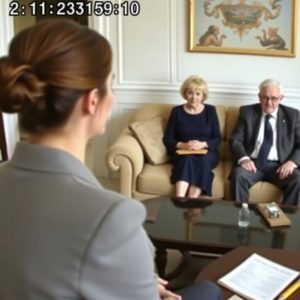DOJ Launches High-Stakes Grand Jury Proceedings
The Department of Justice has intensified its probe into two high-profile Democratic officials. Grand juries in Virginia and Maryland are now weighing potential criminal indictments against New York Attorney General Letitia James and California Senator Adam Schiff. They face allegations of mortgage fraud, bank fraud, and wire fraud—charges that could carry up to 30 years in prison if convicted on all counts.
Special Prosecutor Signals Aggressive Strategy
Attorney General Pam Bondi appointed Ed Martin as Special Attorney to lead the prosecution, a move that underscores the administration’s commitment to pursuing the cases with maximum legal authority. This appointment grants Martin broad powers to conduct grand jury investigations and prosecute across multiple jurisdictions, sidestepping the usual geographic restrictions on federal prosecutors.
Political Weight and Legal Firepower
Martin, former acting U.S. Attorney for Washington, D.C., brings significant prosecutorial experience to the table. His past as President Trump’s nominee for the permanent D.C. post adds political complexity to the role. Declaring that “Attorney General Bondi and President Trump have given me a very serious mission,” Martin signaled the high-level attention these prosecutions command.
Balancing Independence and Sensitivity
While Martin pledged to “go where the facts take me,” he acknowledged the political sensitivity of prosecuting officials who have clashed with the Trump administration. His remarks pointed to months of coordinated DOJ and FBI investigations, suggesting that substantial groundwork has already been laid.
Coordinated Timing and Strategic Oversight
The special attorney designation allows Martin to coordinate multi-state investigations while reporting directly to the Attorney General’s office. This structure offers both high-level oversight and operational independence. The timing of his appointment—aligned with grand jury sessions—signals strategic coordination between investigative and prosecutorial phases, reflecting the administration’s confidence in the strength of its evidence.





